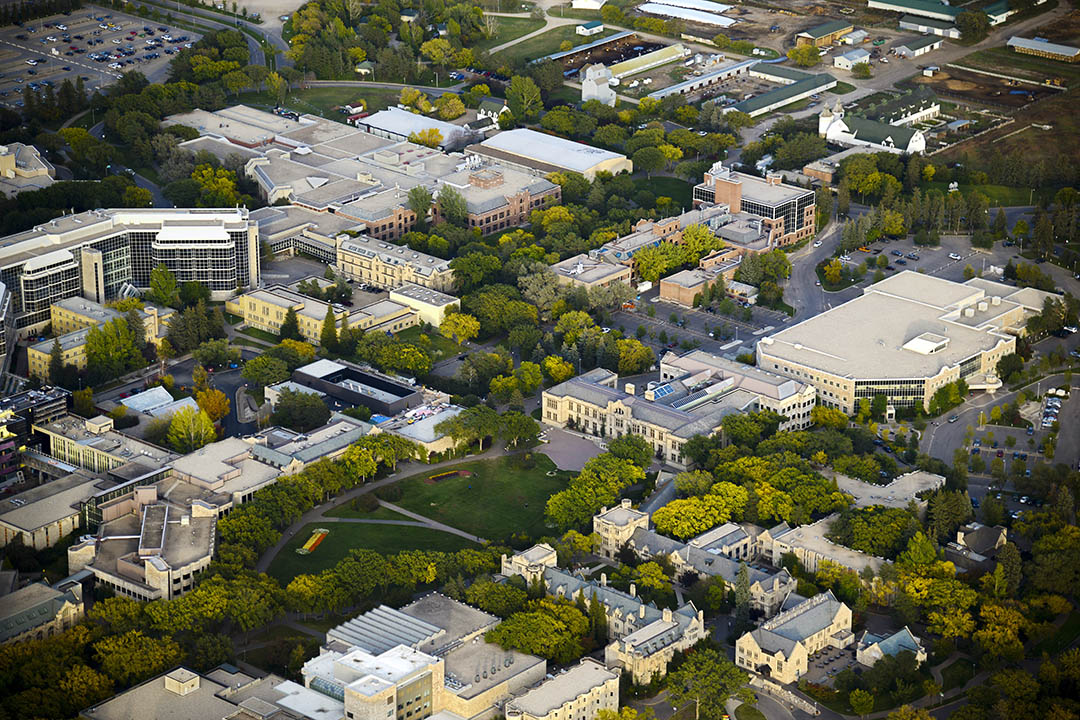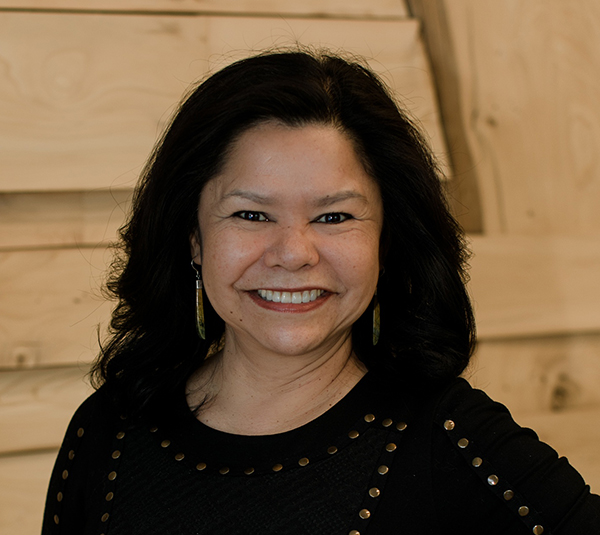
Statement from Vice-Provost, Indigenous Engagement
Vice-Provost, Indigenous Engagement Dr. Jacqueline Ottmann addresses the University of Saskatchewan campus community.

These past few months have been unprecedented on many levels. There has been a convergence of events resulting in instability and uncertainty. The world has been jolted to a stop by COVID-19, then we have been shaken by the horrific images of George Floyd’s murder, and the most recent killing of Chantel Moore – a 26-year-old Tla-o-qui-aht First Nation mother. These instances should have us (re)identifying and voicing what we value. Silence not being an option, as it communicates volumes.
Black lives matter.
Indigenous lives matter. As a Saulteaux/Anishinaabe woman and as a mother, I know this because I experience racism and discrimination. My family does, and First Nations, Métis and Inuit peoples have – for centuries. I understand why we are witnessing protests, the rage, at such a large scale all over the world. It’s because of the overflowing frustration and inaction against injustice and abuse of authority– because racism and discrimination continue in subtle forms of indifference, and in demeaning and violent ways. We know this to be true in our hearts, through our collective experiences, and through generations of research in this area. When difference in skin colour, religion, gender, ability, sexual preference is feared then marginalized, the essence and beauty of humanity is denied – diversity. This is what strengthens us.
Acknowledging is only the first step. Sustained action is the next. I stand in solidarity with movements that challenge institutional, structural and systemic oppression, white supremacy and exclusive forms of privilege and leadership. Like many of these courageous people, I will continue to stand up for justice, equity, inclusion and truth; to work at initiating and being a part of transformational, revolutionary organizational change that embraces decolonial work and actions, deep-seated change that Indigenous philosophies are built upon; such as “All My Relations”, which speaks to the inextricable interconnectedness of all things. Some of our great leaders have taught us just this. Chief Seattle (as cited in Jeffers, 1991, p. 20) explained:
This we know: All things are connected like the blood that unites us. We did not weave the web of life; we are merely a strand in it. Whatever we do to the web, we do to ourselves.
Martin Luther King, Jr. (1998, pp.187-204), in the Letter from Birmingham Jail, passionately declared:
We are caught in an inescapable network of mutuality, tied in a single garment of destiny. Whatever affects one directly, affects all indirectly. Never again can we afford to live with the narrow, provincial “outsider agitator” idea. Anyone who lives inside [his/her country] can never be considered an outsider anywhere within its bounds.
Let’s take heed of these wise words. Our future depends on reciprocal, respectful relationships.
During the past 18-months, the Office of the Vice-Provost Indigenous Engagement has been involved in facilitating an Indigenous Strategy that involved consulting with the Indigenous community – students, staff, faculty, community leaders. One of the themes that emerged, which is now a commitment in the strategy, with a series of Calls to Actions, is Safety. The commitment description reads: “Racism and oppression still exist – both within our communities and beyond. It is evident in the overt and covert actions (e.g., microaggressions) and words of people, evident in the policies that determine how we interact with each other.” A statement that has greatly impacted my life is, “You can’t change what you don’t acknowledge”. The Indigenous Strategy acknowledges and declares, racism and oppression are still very much alive. They are not contained in past stories of slavery and segregation but have evolved into forms that still enslave and divide.
There is so much that we can do to heal deep wounds. At the University of Saskatchewan, it can begin by bringing to life the University Plan 2025, which speaks of decolonization, Indigenization and reconciliation. It can begin by educating and/or re-educating ourselves, to not only ask questions but to engage actively in learning about our multi-dimensional histories. It can begin by checking our implicit and unconscious biases. It can begin by listening and standing alongside, and sometimes behind, ‘people of difference’. It can begin with compassion and empathy. What are we willing to do?
Dr. Jacqueline Ottmann
Vice-Provost, Indigenous Engagement
University of Saskatchewan
